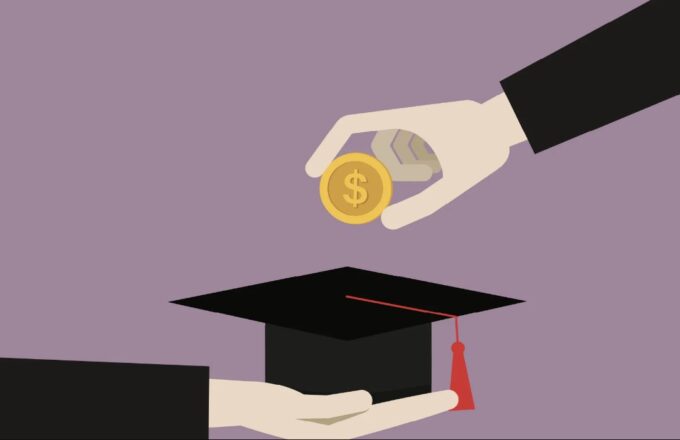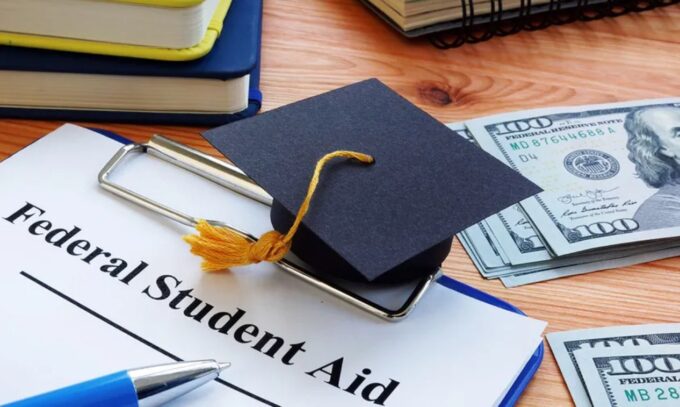Students experience financial difficulties in every country across the world. It’s not easy to pursue higher education. While you may have great skills and deep knowledge together with a desire to get educated and obtain a decent profession, you are also required to have sufficient finances to fund tuition and other costs. You may have heard about student loans as one of the best ways to fund your educational needs. Keep on reading to find out when student loans are beneficial and how to cope with them.
Find the Best Option to Get Money When You Are Student

Before you choose the most suitable solution, you need to take some time and review several options. There are a few ways of solving your temporary financial issues in terms of paying for your education. Every student should review and compare these options so that he or she selects the most appropriate decision with full responsibility.
When you need money now for various purposes and the most suitable way to get cash is to apply for an unsecured loan, find more info at https://fitmymoney.com/best-unsecured-loans/.
It may be extremely helpful as it contains plenty of relevant articles and updated materials including loans and ways of financing your tuition with less effort. You should value each of the following cases and make the right decision. So, you have several ways of funding your needs:
- Personal Savings. One of the easiest and fastest ways to fund your educational needs is to utilize your own savings. If you already have a savings account or your parents have saved some cash continuously for your future education, you may be happy to fund your tuition and other needs using this cash without getting into debt.
- Tap Your Family. If you don’t have any savings but have many relatives willing to help you, it may also be smart to ask for financial assistance. This type of debt won’t usually cost you any interest rates but it’s high-risk as you need to take full responsibility for your actions and for the money you borrow. If you won’t be able to return the funds as you’ve agreed, you may risk ruining your personal relationships.
- Scholarship. If you don’t have enough funds to pay for the tuition and additional costs connected with getting higher education, you should first submit the free application for Federal Student Aid. This is a great option for qualifying for various Federal and state loans, scholarships, as well as grants from different colleges and universities.
- Personal Loan for Students. If you can’t qualify for any of the mentioned options, getting a personal student loan sounds reasonable. This way you don’t rely on your family and don’t need to wait for grants. This is your chance to obtain the necessary funding and finance your immediate needs while you will have enough time to repay the debt in the future according to the repayment schedule.
Federal Student Loans and Private Student Loans

According to this personal loan statistics, 43.2 million student borrowers are in debt by an average of $39,351 each. The latest statistics show that there has been a serious student loan debt crisis since 2025. This is the second highest consumer debt category after mortgage and credit card debt. Millions of students have difficulties with payment for their higher education.
When you need a loan, you may either apply for a federal student loan or a private student loan. Federal student loans are financed by the federal government whereas private student loans are issued by the local banks, credit unions, or alternative creditors. What are the differences between these two options and which one is beneficial for you? Here is a comparison that may help you make the right choice and opt for the most suitable solution.
- Federal Student Loans. They are issued by the government. The terms and loan conditions are usually indicated by law and are fixed so they won’t change over the lifetime of the loan. One of the best advantages is the ability to start repaying this debt after you graduate. The interest rates are generally fixed and quite low. Another benefit is the ability to qualify for federal student aid without a credit check. This is especially relevant for young students who don’t have any credit history yet.
- Private Student Loans. They are issued by private lending institutions, banks, alternative creditors, credit unions, etc. Every creditor sets its own terms and conditions on such student loans so they may vary. One of the main disadvantages here is the necessity to start repaying the debt while you are still in college or university which may be quite challenging especially if you don’t work. The interest rates are variable and tend to be higher depending on eligibility criteria. You should provide a credit record or get a cosigner to qualify for a private student loan though.
How Can You Utilize the Money?

No matter if you are studying on campus or online, you have a chance to obtain extra financing and utilize the cash according to your needs. The money you borrow may be used for covering tuition, books, room and board, transportation, supplies, and computer. Once you find several creditors or lending institutions, make sure you take some time to compare your options.
There is no need to hurry as this debt will stay with you for a long time so you need to make sure you’ve found the best deal. Choose a service provider with the lowest interest rates that are fixed for the whole period. Learn about your current FICO score to know your options. Find everything about the company you are going to apply to and make certain it’s certified, reliable, and has been around for enough time.
Select the most affordable offer and make sure you know how much you will need to pay each money and when the repayment period starts – either after you graduate or the very next month. Think twice before you sign the contract and remember you are the only one responsible for this debt. It may affect your credit history and ability to borrow in the future so you need to make everything possible to return this debt on time.









